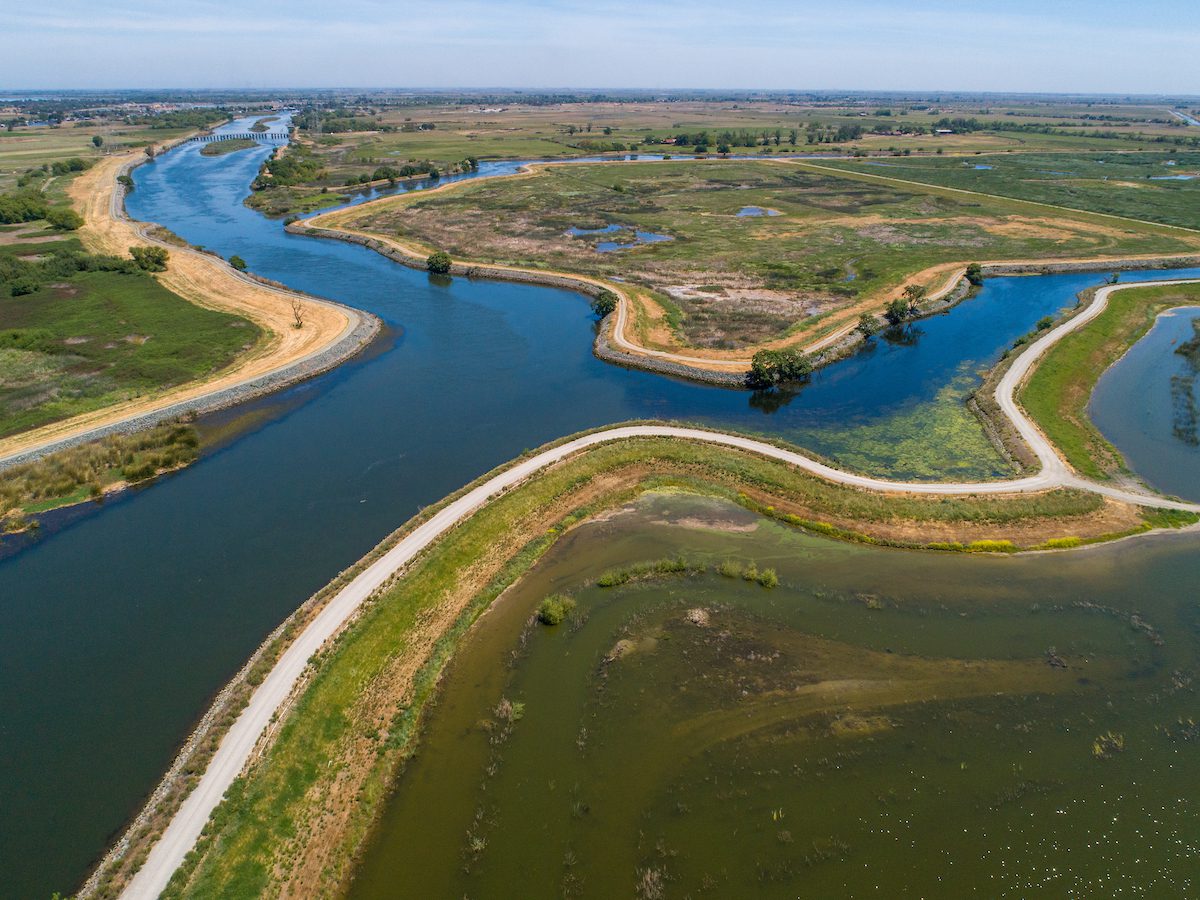California announced today that farmers are receiving financial incentives to reduce their water use  and protect wildlife and water quality in the Delta as part of a Delta Drought Response Pilot Program
and protect wildlife and water quality in the Delta as part of a Delta Drought Response Pilot Program . The program is led by the Sacramento-San Joaquin Delta Conservancy, in partnership with the Department of Water Resources (DWR), the Office of the Delta Watermaster, and The Nature Conservancy.
. The program is led by the Sacramento-San Joaquin Delta Conservancy, in partnership with the Department of Water Resources (DWR), the Office of the Delta Watermaster, and The Nature Conservancy.
The program works with farmers to implement practices to conserve water, protect Delta water quality, promote soil health, and mitigate potential drought impacts on fish and migratory birds. The program first launched in January 2022. Response to the first phase of the program offering $10 million in grant funding was a success, with more than 8,700 acres enrolled.
With funding allocated in the Budget Act of 2022, the program has launched a second phase with an additional $10.7 million in grant funding available to farmers implementing conservation measures. The Delta Conservancy will conduct the 2023 program through a reverse auction. Bids can be submitted through the Delta Conservancy’s website and will be accepted through October 18, 2022.
“This has been a great collaboration with the Delta farming community to develop a program that meets the shared objective of better understanding how we can best conserve water in times of drought,” said Delta Conservancy Executive Officer Campbell Ingram.
“With the help of famers located throughout the Delta, the information and benefits gained through this program will help us respond to current and future droughts while also supporting wildlife,” said DWR Director Karla Nemeth.
In addition to providing grants to farmers for their conservation measures, the program is offering bonus incentives to participants who provide critical habitat improvements for waterbirds. The Central Valley is one of the major wintering grounds for migratory waterbirds, supporting wintering waterfowl and attracting millions of birds to seasonal marshes. With California’s extended drought and climate change resulting in less water and habitat for wildlife, participants could receive a bonus of $75 per acre for short-term shallow flooding or $40 per acre for providing nesting habitat through delayed harvest.
“The Delta Drought Response Pilot Program is an important demonstration of how to effectively reduce agricultural water demand while simultaneously creating ecosystem health and wildlife benefits that are desperately needed to protect California’s natural heritage,” said Rodd Kelsey, associate director of the water program with The Nature Conservancy in California. “It will serve as a model for achieving water resilience in California going forward. We are excited to be helping design and execute the program.”
The pilot program is collaborating with UC Davis to calculate water savings that result from this initiative. Outcomes will be monitored to identify which agricultural practices and conservation methods are most effective, informing conservation and water quality protection responses during current and future droughts.
This program is supported by North, Central, and South Delta Water Agencies in collaboration with the California Environmental Protection Agency, the California Department of Food and Agriculture, California Natural Resources Agency, The Nature Conservancy, the University of California Cooperative Extension as well as Davis and Merced campuses, and made possible by multi-benefit drought relief funds contributed by DWR. Data and results from implemented conservation measures will be made publicly available through the California Natural Resources Agency Open Data Portal.
For questions about the Delta Drought Response Pilot Program and future solicitations, please contact the Sacramento-San Joaquin Delta Conservancy at Contact@DeltaConservancy.ca.gov.
Image: The Dutch Slough Tidal Marsh Restoration Project site, located in the Sacramento-San Joaquin Delta near Oakley, California, California Department of Water Resources .
.


Leave a Reply